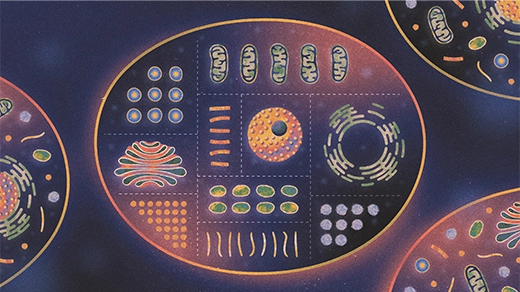What's up in
Eukaryotes
Latest Articles
All Life on Earth Today Descended From a Single Cell. Meet LUCA.
The clearest picture yet of our “last universal common ancestor” suggests it was a relatively complex organism living 4.2 billion years ago, a time long considered too harsh for life to flourish.
He’s Gleaning the Design Rules of Life to Re-Create It
Yizhi “Patrick” Cai is coordinating a global effort to write a complete synthetic yeast genome. If he succeeds, the resulting cell will be the artificial life most closely related to humans to date.
Meet the Eukaryote, the First Cell to Get Organized
All modern multicellular life — all life that any of us regularly see — is made of cells with a knack for compartmentalization. Recent discoveries are revealing how the first eukaryote got its start.
The Mystery of the Missing Multicellular Prokaryotes
Why have bacteria never evolved complex multicellularity? A new hypothesis suggests that it could come down to how prokaryotic genomes respond to a small population size.
Cellular Self-Destruction May Be Ancient. But Why?
How did cells evolve a process to end their own lives? Recent research suggests that apoptosis, a form of programmed cell death, first arose billions of years ago in bacteria with a primitive sociality.
A ‘Lobby’ Where a Molecule Mob Tells Genes What to Do
Highly repetitive regions of junk DNA may be the key to a newly discovered mechanism for gene regulation.
Fossilized Molecules Reveal a Lost World of Ancient Life
A new analysis of ancient sediments fills a gap in the fossil record — revealing a massive dynasty of ancient eukaryotes, which may have reigned for 800 million years and shaped the history of life of Earth.
Primitive Asgard Cells Show Life on the Brink of Complexity
As researchers race to cultivate more of the intriguing cells from the deep seafloor, the few cells now growing in labs are giving us our best glimpses of the forerunners of all complex life.
A Billion Years Before Sex, Ancient Cells Were Equipped for It
Molecular detective work is zeroing in on the origins of sexual reproduction. The protein tools for cell mergers seem to have long predated sex — so what were they doing?








